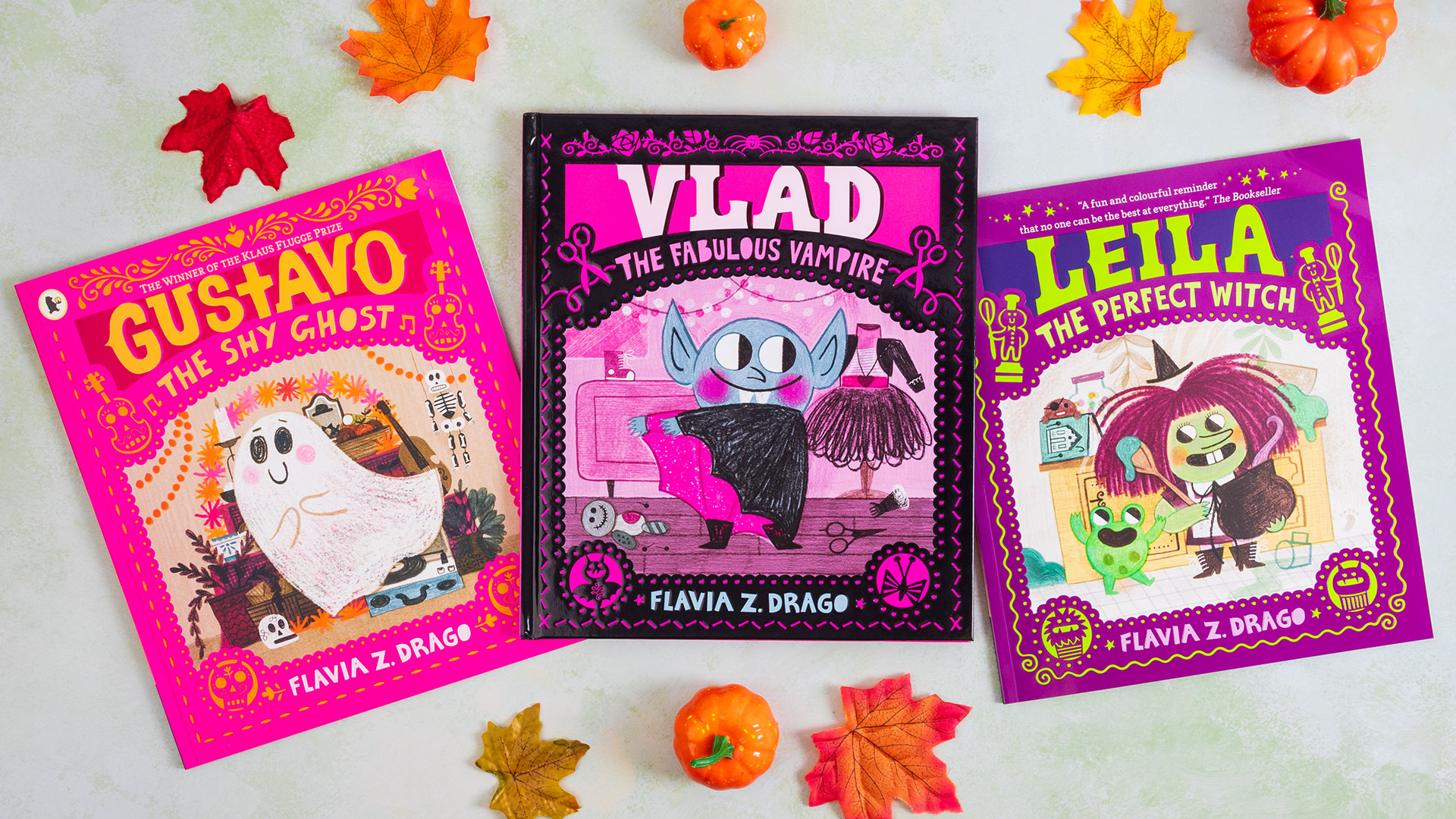
Mexican-born illustrator Flavia Z Drago has been named this year's lllustrator of the Fair at the London Book Fair (taking place 12-14 March). As the title suggests, Flavia has been very successful in the world of illustration, and has published a series of books based around monsters, including Gustavo, The Shy Ghost, Leila, The Perfect Witch and Vlad, The Fabulous Vampire.
I caught up with her recently to discover how she went from child sketching drawings to MA student to finally getting a book deal. We also chat about inclusivity in illustration, as well as how her native Mexico has influenced her work.
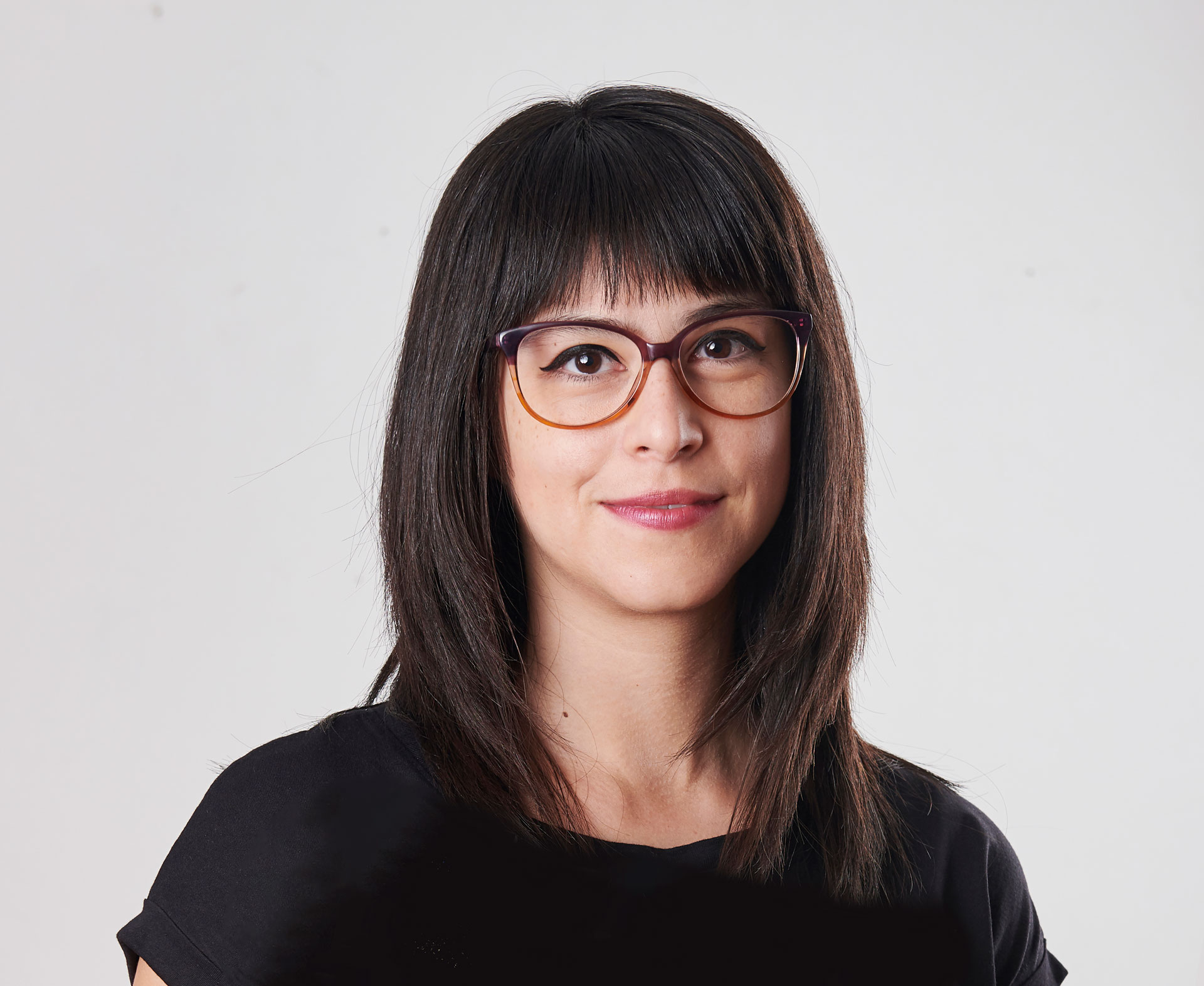
What does it mean to you to be Illustrator of the Fair?
It's really surreal for me to be named the Illustrator of the Fair. I'm originally from Mexico and I didn't have a lot of picture books growing up. I did have lots of art books. And there was a TV show based on a David McKee picture book. It was the story of why toucans, the birds, have different colours. And I loved that story so much, I kind of made my own version. I did my own illustrations. I had a typing machine and I felt very professional.
And then when they invited me to be the Illustrator of the Fair, I realised that David McKee had been the Illustrator of the Fair previously. So it was kind of fun to know that when I was a child I was just copying his things, and now I'm doing my own work. I never imagined I'd be an illustrator, but I love this job so I'm just really, really happy.
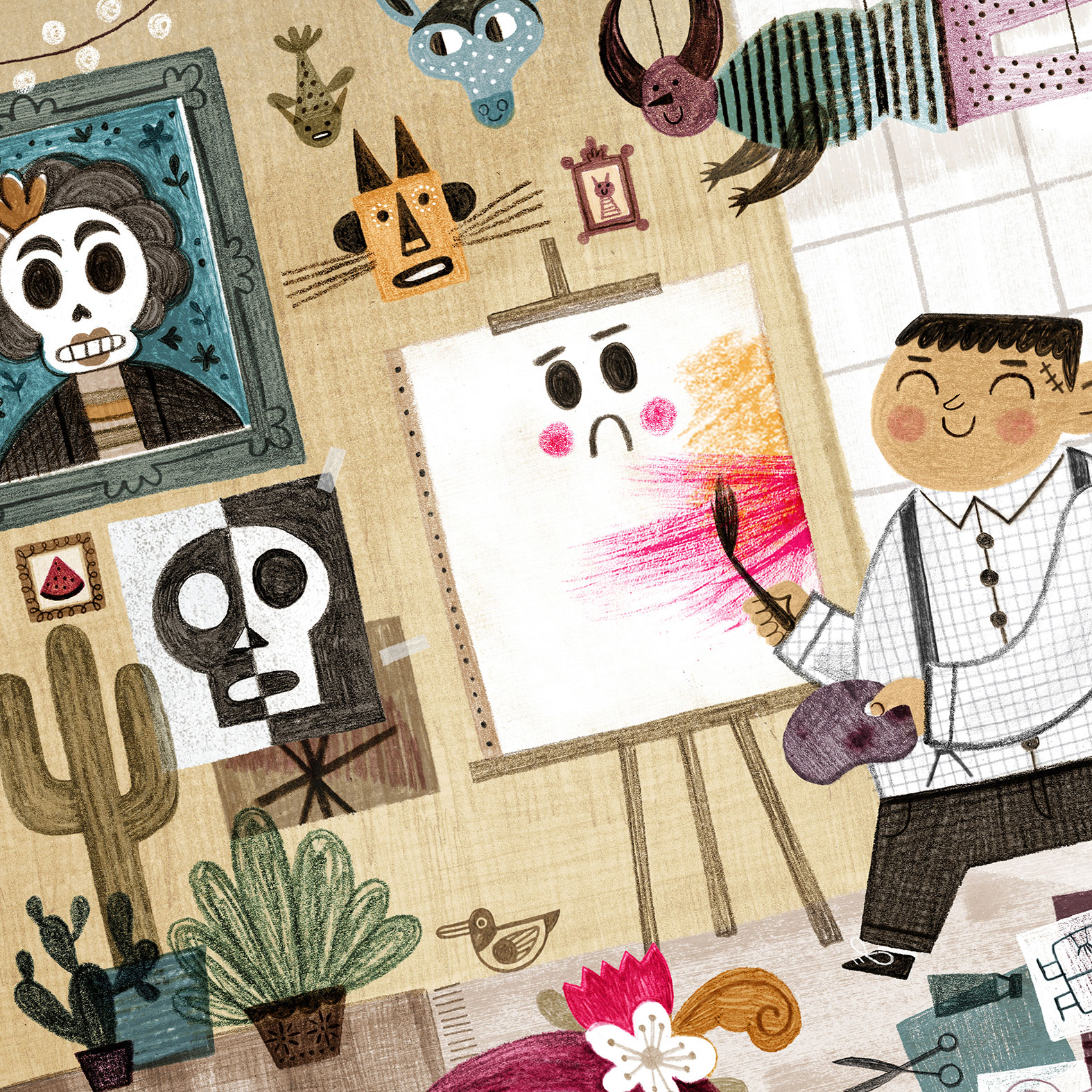
What are you most looking forward to about the London Book Fair?
Going around and seeing what's new, what interesting things are going to get published and what the mood is like? Last year there were interesting conferences about trends in picture books and being more inclusive in the industry... So I'm looking forward to seeing what's new this year.
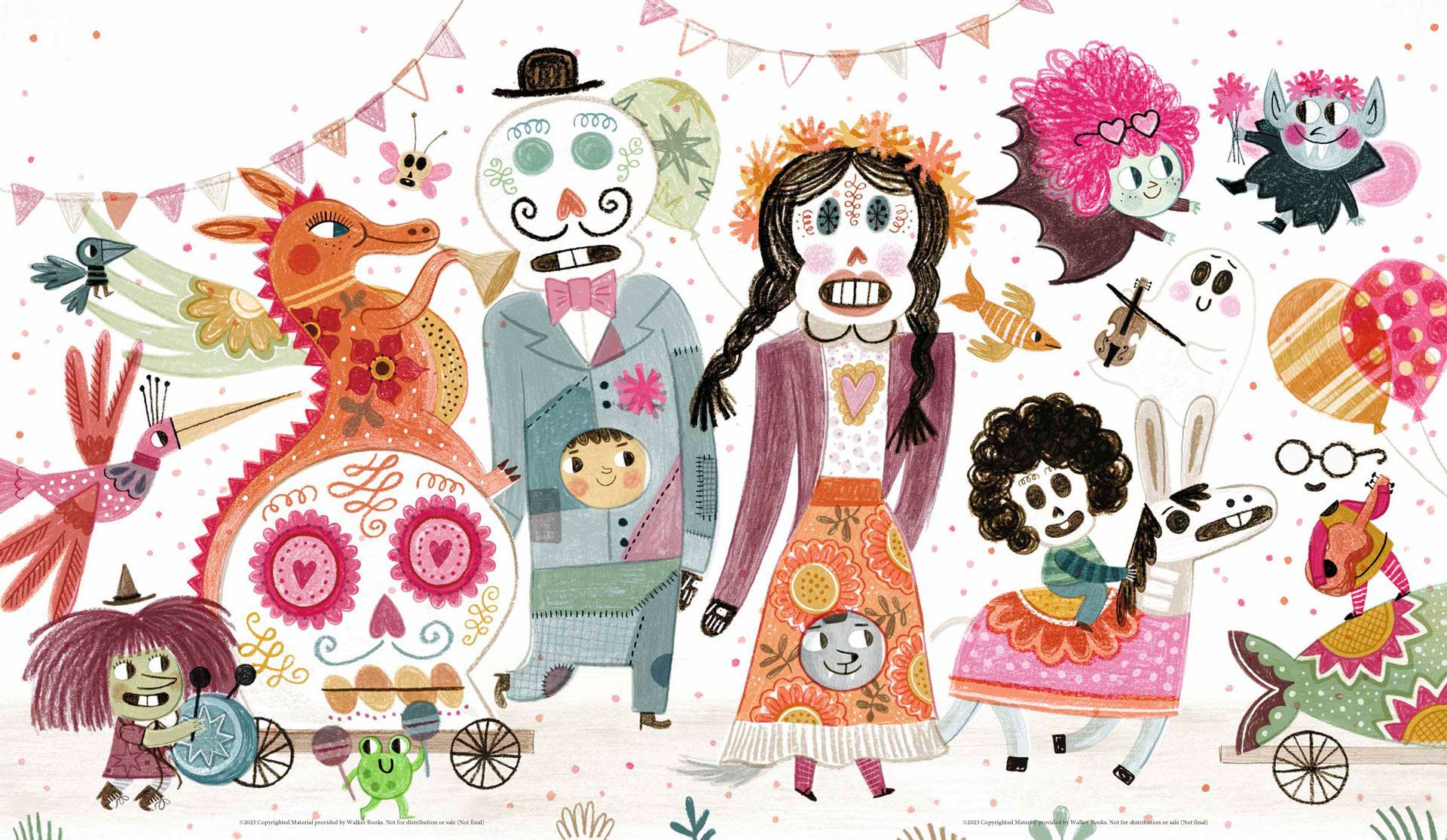
How inclusive is the industry at the moment?
I think at the moment, there's a lot of interest in being more inclusive. I mean, they chose me to be Illustrator of the Fair. You can see that in prizes as well. The books that are being nominated are books about migration, or books about inclusivity, books about telling stories from different countries and different places. And I think that's really important and it's good, especially if it's done from an authentic perspective, rather than from someone who might well try to make something more inclusive but not include people from the original country. I think there's this effort on the part of publishers to be more inclusive and to be more aware of this, to tell new stories to expand readers' views about the world.
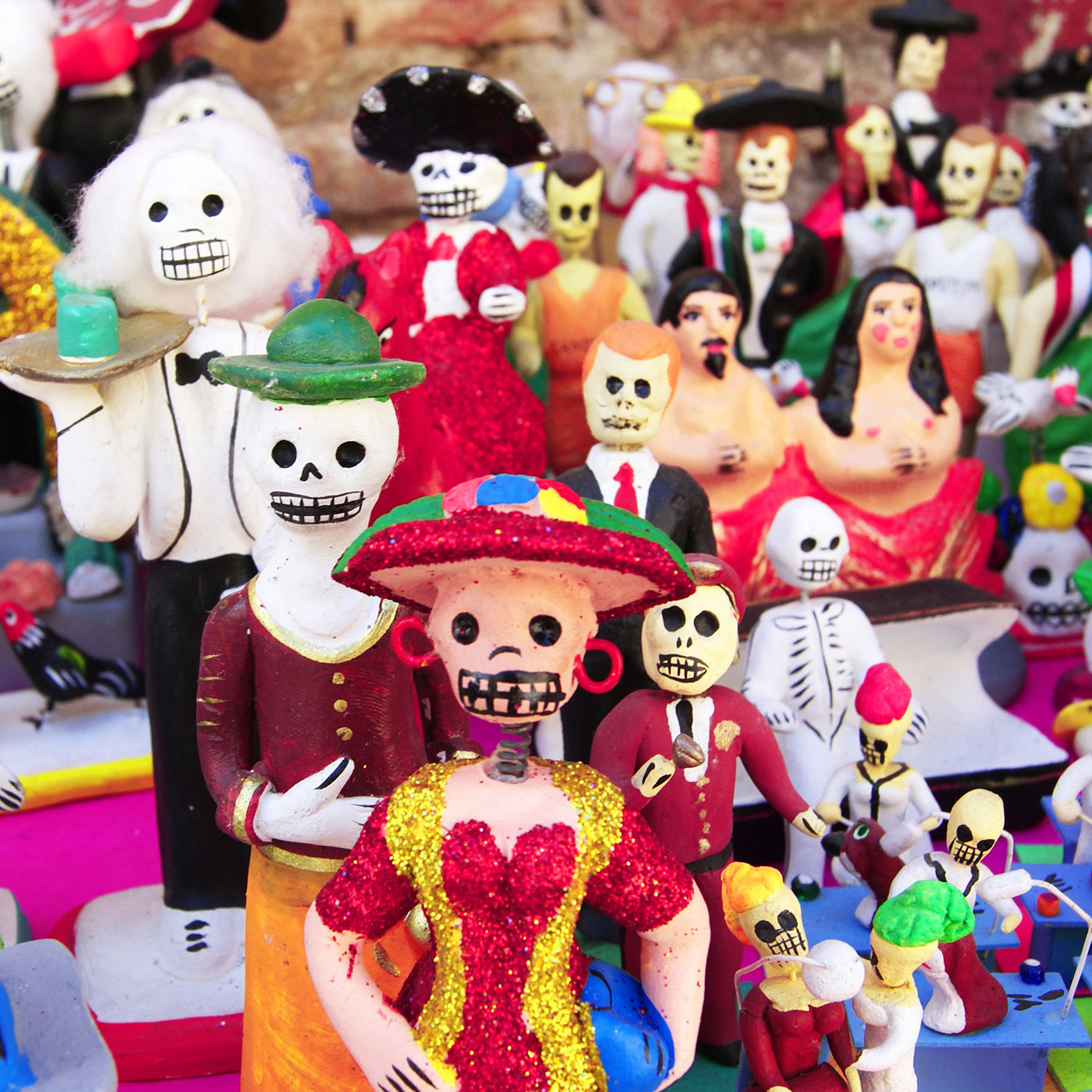
How do you think that your Mexican upbringing has influenced your books?
It has influenced them greatly, I think in the visual aspect. I was really happy that my publishers went along with it, and they were very open to me using Mexican houses and Mexican cutlery and Mexican celebrations in my own books. I didn't think that was even possible. I always had this idea that books needed to be less specific, but maybe if you build a story that is strong enough, you can also have things that are very specific... It has to have a little bit of everything – things that feel authentic, and things that feel universal.
I think the other factor that has influenced my work is definitely the celebrations in my country. How we see colour is also in my books. And every time I'm working on a new book, I discover something that I maybe initially didn't envision was going to be there, but it's there because it's part of my experiences and if it fits the story, I'm just going to add it.
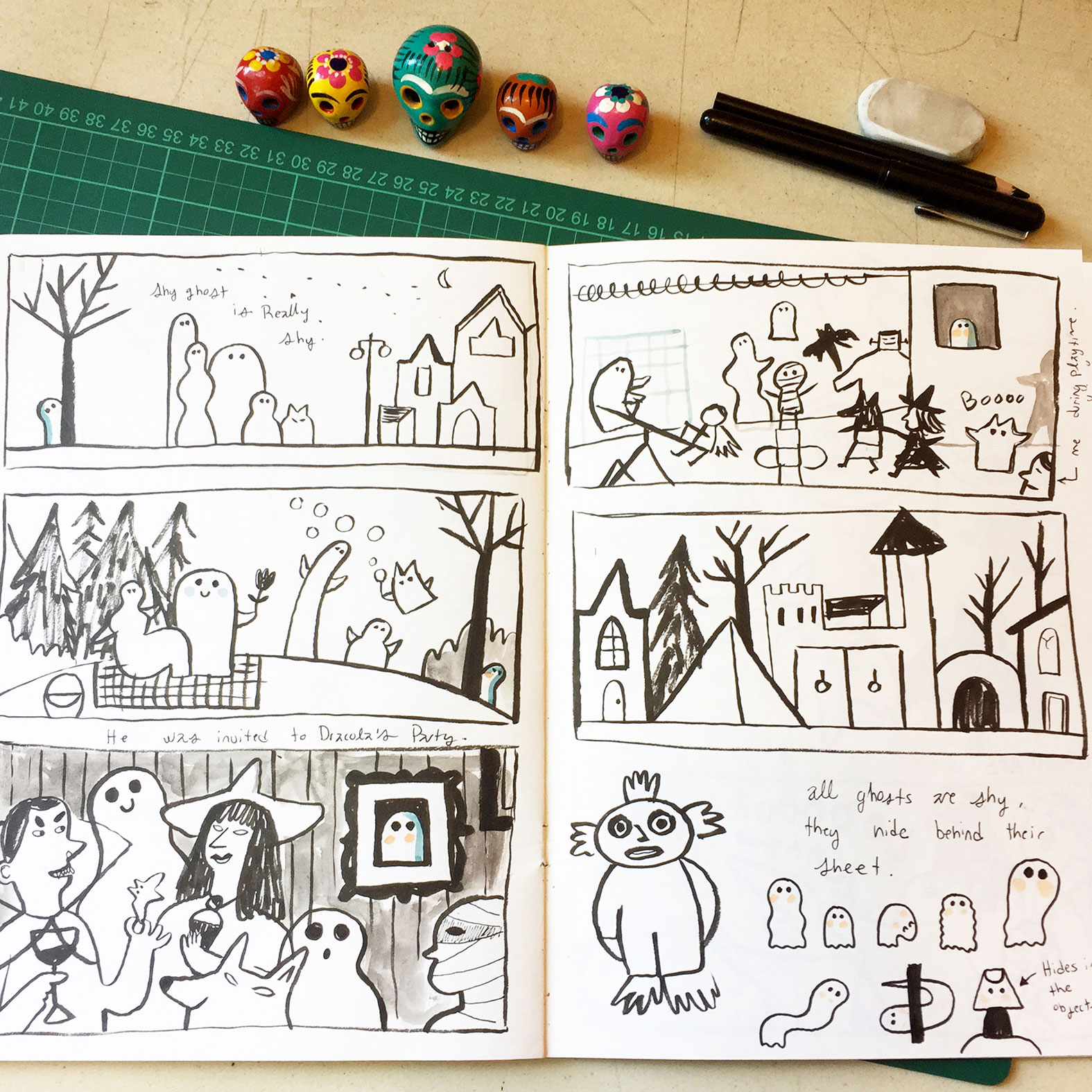
What's the illustration industry like in Mexico?
It's very, very different. It's much smaller. Independent publishers are very small – usually a small team of maybe four, sometimes just one person who is the publisher, the designer, who does the production. The print runs are very small and they are local, sometimes with help of the government. There is not a lot of selling co-editions as happens in the UK. So there is a big contrast as to how the industry works and the reach that it has.
A thing about the British industry is that it has a lot of reach in the sense that British publishers are trying to sell co-editions and get them published out. In Mexico you get small publishers making a huge effort trying to make books that they really care about. And at the same time, you see lots of foreign co-editions and sometimes very famous picture book makers that have a whole table with 100 copies of each book. And I find it a bit frustrating because I know there's a lot of talent there, there's just simply not as much money, which makes things a lot harder.
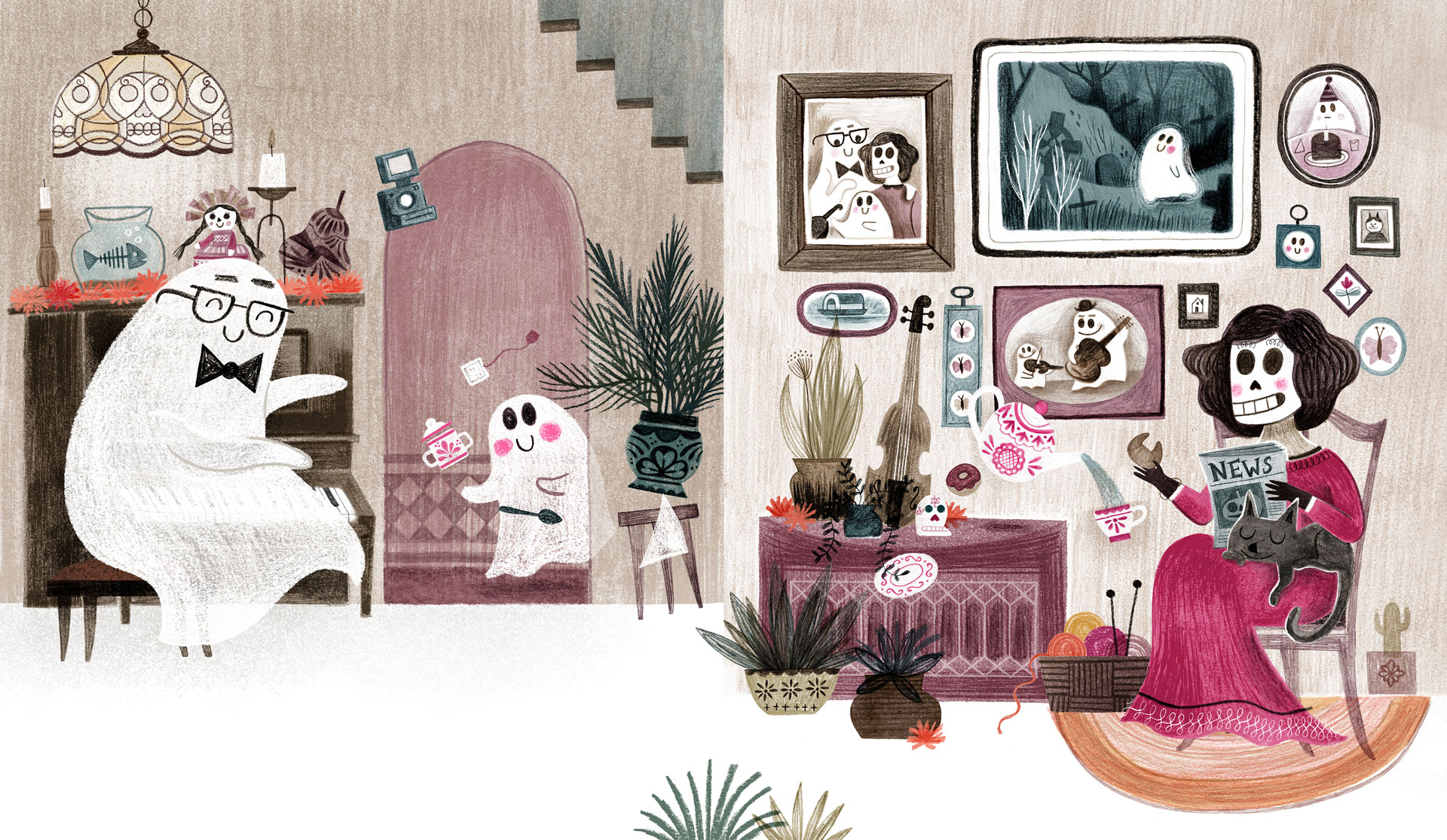
Did you feel you needed to leave Mexico to make it as an illustrator?
That was an incentive. I just wanted to be able to make a living out of making children's books and I didn't know where to start. In Mexico we don't have illustration schools, you either study fine art or you do graphic design... Initially I wanted to be a graphic designer. I wanted to design logos, packaging, stuff like that. And then I discovered picture books and I was like 'how do I do that'? I became an illustrator very, very slowly over time.
I lived in Barcelona for four months and did a short course in illustration. Then I applied for a scholarship in France and did a year in France and that was that was very interesting too, the French industry is also very different. And then when I came back, I finally considered myself to be an illustrator... I was really insecure. It took a lot of years for me to say 'yes, I'm an illustrator'.
I had this idea that I really wanted to make my own books. I wondered, 'How do I do it? How have other people managed to do it?' I tried to publish my books by submitting them to contests without any luck. And then I found out about the MA in illustration at Anglia Ruskin in Cambridge, and I decided that it looked like a really great opportunity, and it's something I would really like to do and it looked like the best people in the world are there. So I gave it a go and I applied, I got accepted. And I went through the program and it's just the best decision I could have made.

How easy was it for you to get published after doing your MA?
I was very lucky. I got picked by Walker Books. They organise this prize every year for graduates from the MA, the Sebastian Walker prize. I think they liked my work because they go and they look at the work of all of the graduates and they called me for an interview. They asked me to show them my work and I was like 'yes, I have this book with a princess and this book with a rabbit.' And they were like 'yeah, we like them but we have things that are like that in our catalogue already. Do you have more ideas?'
I shared with them an idea idea of a shy ghost, who I didn't even know if it was a boy disguised as a ghost or a ghost ghost, it developed through the process. I pitched that idea and there was kind of back and forth and they offered me a contract and I started working with them maybe four months after the course was done. So I was really lucky.
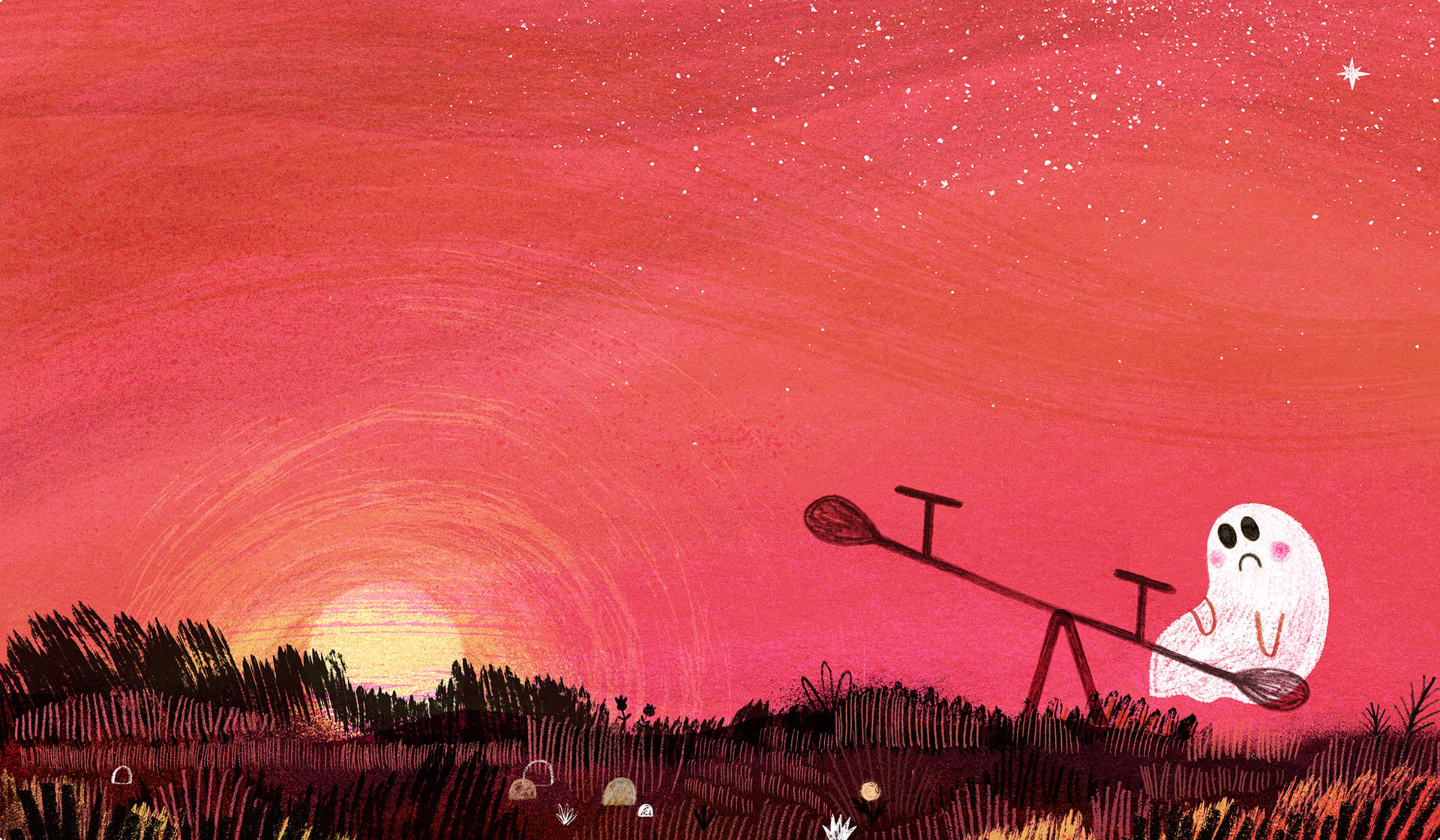
Find out more about Flavia via her website and sign up to the London Book Fair, which takes place 12-14 March at Olympia London.







